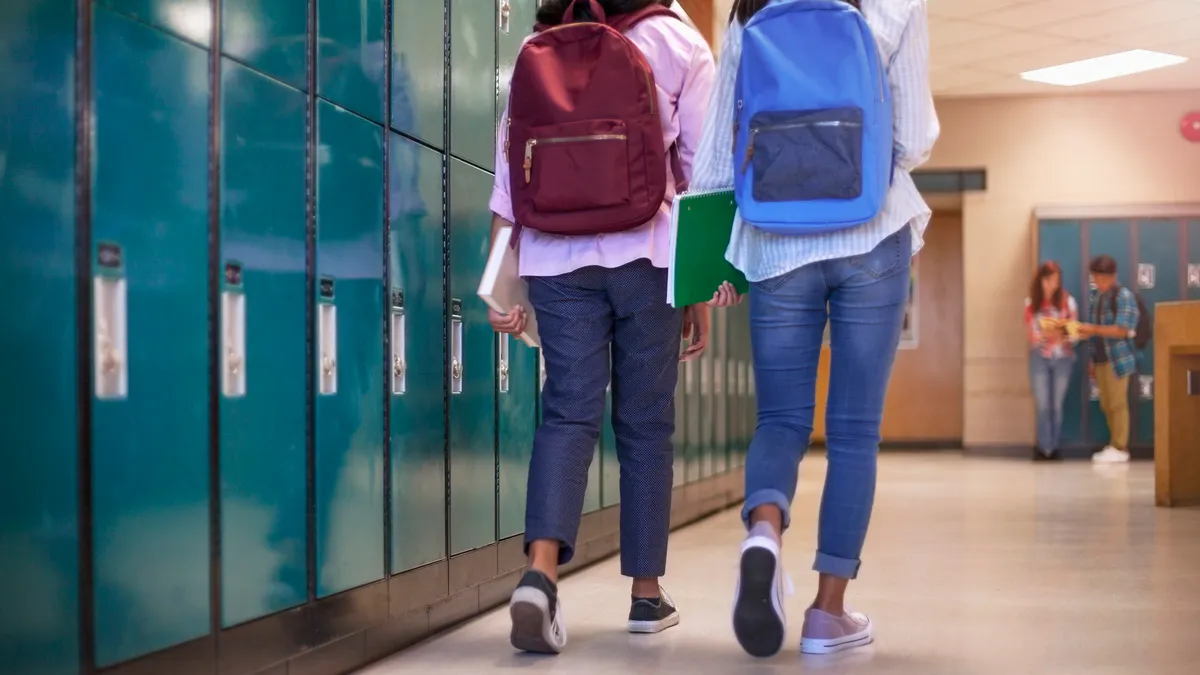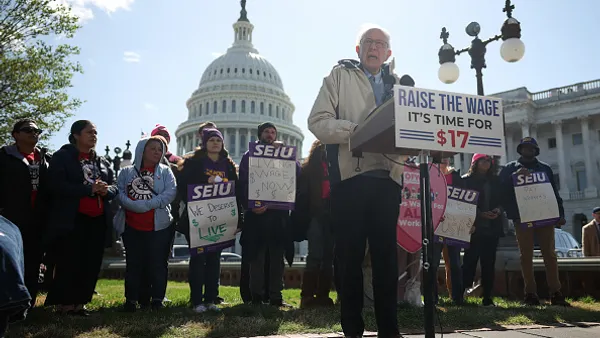Dive Brief:
- The current cohort of high school students, part of Generation Z, values postsecondary education but is increasingly interested in alternatives to four-year colleges, according to a new report from ECMC Group, a nonprofit focused on student success, and Vice Media.
- In 2023, 65% of surveyed students said they would need education beyond high school, compared to 59% pre-pandemic, the report said. But 59% said they could be successful if they don’t get a four-year degree
- Almost half, 48%, of high schoolers said their postsecondary education would ideally take three years or less, and just over a third, 35%, said it should take two years or less.
Dive Insight:
Traditional students are reconsidering the value proposition of a four-year college education. Much of the discussion has focused on the cost and post-graduation debt.
A majority of Gen Z high school students, 62%, worry about paying for college, the new report found. But it also showed that the time investment is a serious consideration.
Researchers surveyed over 7,000 high school students about their thoughts on higher education and their future careers between January 2020 and January 2023.
In 2020, 20% of students considered attending a community college, it found. That portion rose to 25% in 2023. Likewise, students considering career and technical education, CTE, rose from 15% in 2020 to 19% in 2023. Interest in on-the-job training rose from 19% to 22% over the same period.
Interest in a traditional college experience remains high. Around half of surveyed students, 52%, said they were considering a four-year institution — a percentage that has largely remained unchanged since 2021. But interest has yet to recover to its pre-pandemic standing of 71% in 2020.
High school students are making choices with their future careers in mind, the report stressed.
Nearly four in ten Gen Z students, 38%, said the most important consideration when choosing a college was what careers would be available to them, with similar shares saying the same of being able to feed themselves (34%) and having reliable transportation (30%), the report said.
Among those surveyed, 79% said it is important that they have on-the-job learning experiences as part of their higher education. About two-thirds, 65%, said they would ideally learn job skills through internships or similar programs.
High schoolers also see education as a societal responsibility, the report said.
A vast majority, 90%, said the government should support education and careers by subsidizing higher education, reimbursing tuition and helping pay off student debt. And 86% said the private sector should behave similarly, providing and reimbursing employees for formal education. These shares have stayed consistent since before the pandemic.














